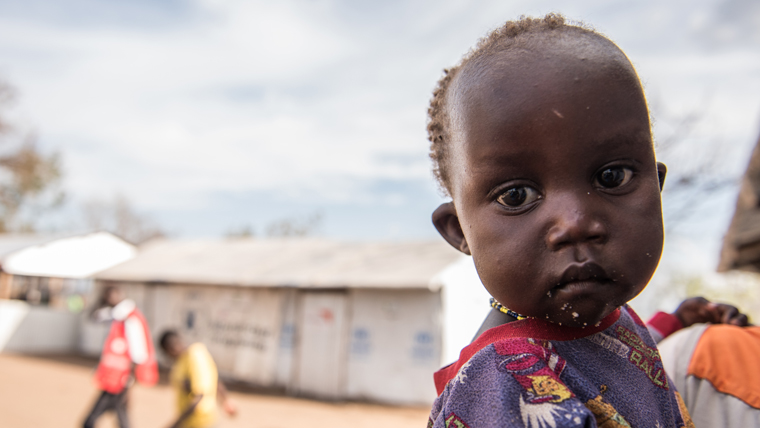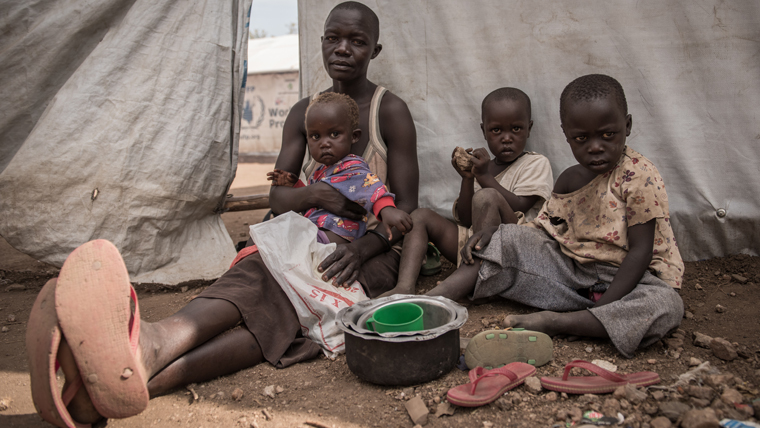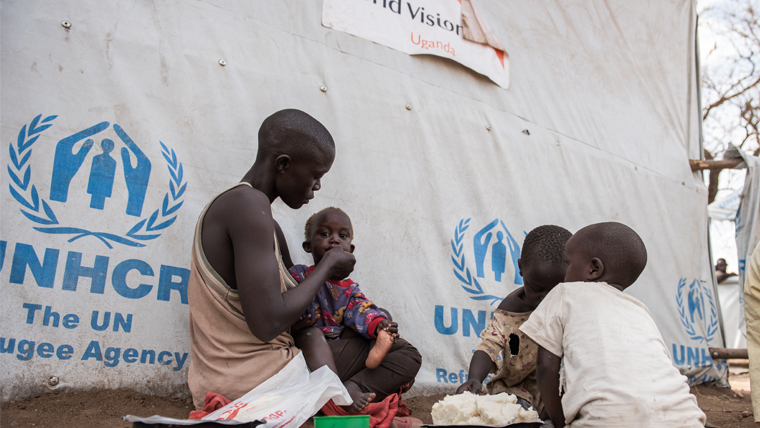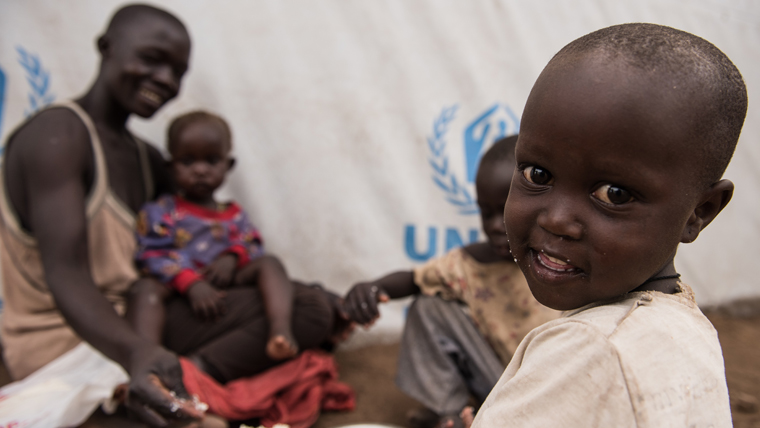Serving hope, one hot meal at a time
By Theodore Sam

One-year-old Sumaya tries to feed on her mother's milk. Her mother Amandru gently pulls little Sumaya's mouth away from her breast again. Her breasts are empty. It has been more than seven days since she could last breastfeed Sumaya.

You can see from her face that Amandru is tired. Physically, mentally, emotionally. A blank expression is on her face and she stares through the crowd of children, women and men holding pans in their hands, waiting to receive their meal. With not much strength left to wait in the long queue, Amandru and her three children rest on the side of the tent where the meals are being served. World Vision, partnering with the World Food Programme (WFP), serves hot meals to refugees who arrive at various border crossing points from South Sudan into Uganda. This is the first proper meal Amandru and her children will have eaten in weeks.
Amandru fled from her village near Yei in South Sudan, which is more than 220 kilometers away from the Ugandan border, where the refugee reception center has been set up. Amandru and her children reached Uganda after about four weeks of walking.
When fresh violence broke out in South Sudan in July 2016, Amandru's husband was shot dead. She was out in the field working on the land, when she heard the news of her husband's death from someone in her village, who saw her husband's body lying on the road. "Many people were being killed every day. With my husband shot dead, I was scared to stay in the village. I went and hid in the bushes with my children. A few days later my house was completely burned down," recalls Amandru.
Amandru set up a makeshift hut in the bushes and survived with her children Sumaya, Ariye (4) and Madasi (6) by eating just once in two days for many months.
I had some beans that I carried along with me when we fled. But every day I was worried that the beans would run out and we would have nothing left to eat. So we started eating only one meal a day for a few weeks and many days ate just once every two days.
- Amandru
Sometimes Amandru would go back to her farm to get some sweet potatoes from their land. "But it was unsafe and scary. I saw dead bodies,” she says.
With finding food becoming a challenge, and the others hiding in the bushes with them leaving, Amandru too decided to cross into Uganda.
For over four weeks Amandru and her three children walked every single day from morning till night. "The children are still small, so we had to rest six or seven times every day," she said, gently rubbing little Sumaya's dusty hair.
Throughout the entire four-week journey, Amandru and her children survived eating only peanuts, the four of them sharing just one handful of peanuts per day.

Amadru's body language changed as soon as a World Vision staff offered to help get the meals for her. The four of them sat down near the tent, little Sumaya on her mother's lap. The children were eager to start eating, but Amandru made sure the three children washed their hands before they touched the food.
The four of them ate their meals. Their faces brightened and they smiled.

Amandru and her three children arrived at the recently established Imvepi reception centre in Uganda. The latest figures show there are more than 890,000 South Sudanese refugees residing in Uganda, with estimates this will reach 1 million by the end of June. Since April 2017, new arrivals from South Sudan into Uganda have averaged more than 2,800 per day.
According to The United Nations High Commission for Refugees (UNHCR) the South Sudan refugee crisis is the fastest growing crisis in the world right now.
World Vision is on the ground distributing food and other items, providing child protection, and improving access to clean water and sanitation.
The simple hot meal at the reception center has put a smile back on the faces of Amandru and her children. However, the desire to rebuild a peaceful life for her children rests on the hope that the world will stand by her.
Find out more about how you can support our work in South Sudan.